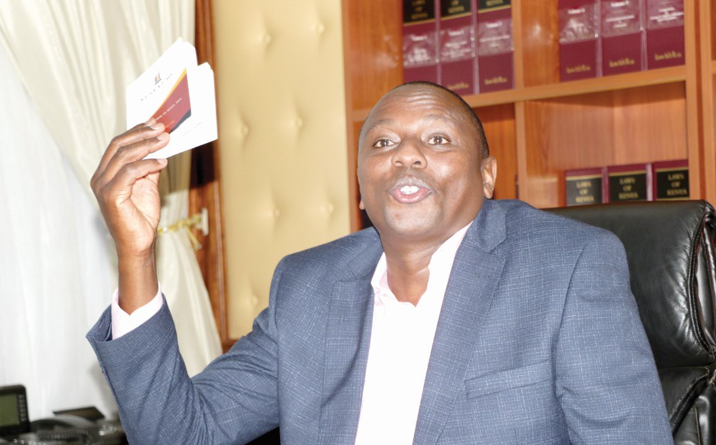Bill seeks new rules on wealth for President

The wealth of a President, his deputy and other State officers will be accessible to scrutiny if MPs pass a Bill tabled that the Leader of Majority has tabled in Parliament.
The Conflict of Interest Bill, 2023, which is sponsored by Kimani Ichung’wa — who is also MP for Kikuyu — seeks to manage conflict of interest in the discharge of official duties.
It says public officers will be required to declare their wealth within 30 days of their appointment and once every two years thereafter. If approved, public officers will also be required to declare their sources of income, assets and liabilities. It will also be mandatory for them to declare the wealth of their spouses and children below the age of 18.
According to the Bill, State officers will have to declare their income, assets and liabilities outside the country. Further, they will be required to make public the property they own and their personal and business accounts registered overseas.
Public officers who fail to make these declarations to the Ethics and Anti-Corruption Commission (EACC) will be liable to a fine of Sh1 million or two years in prison.
Persons who access, or will be custodians of the said information will be under oath not to make it public unless authorised to do so by th EACC.
Under the existing law, information from State officers is confidential and can only be made public through the permission of the Speaker or through a court order.
Those who contravene the proposed disclosure rules will be liable to a fine not exceeding Sh1 million or to imprisonment to a term not exceeding two years, or both.
According to the Bill, a public officer will be in conflict of interest if he or she exercises official power, duty or function that advances his private interests or the private interest of another person, his or her family, relative or associate.
This is the third attempt to remove the restrictive clause that denies the public access to the information on the wealth of State officers after two similar Bills were time-barred in the last Parliament.
A review of the wealth disclosure law seeks to increase transparency in the public sector and stop influential State employees from enriching themselves through scandals involving dubious business dealings with the government when they are still in power.
A month after being appointed, public officers will be required to submit an initial declaration relating to their financial affairs for the period of one year before the appointment.
“It will be mandatory for the public officers to submit a declaration relating to the financial affairs of the public officer,” reads the Bill.
Those leaving office will still be subjected to the law because they will be required to make similar declarations within 30 days after leaving office.
EACC will be required to analyse the declarations and ascertain their completeness and correctness, whether the declarations raise possible issues of conflict of interest and whether the declarations contain discrepancies or inconsistencies.
The Bill provides for a 90-day period for newly-appointed officers to divest any private interest that could place them in a conflict-of-interest situation.
“Such divestiture may be done by selling them in an arm’s length transaction or placing them in a blind trust,” reads the Bill, which also stipulates that a blind trust shall be registered to the trustee unless they are in a registered retirement savings plan account.
“A public officer shall not have any power of management or control over the trust assets. The trustee shall not seek or accept any instructions or advice from the public officer concerning the management of the assets,” the Bill states.
It also empowers any person with information that a public officer has contravened the law to lodge a complaint with the EACC, which may investigate and determine whether the public officer has violated the law.
The EACC monitors the declaration of income, assets and liabilities of the officers, which it uses to track down those involved in shadowy dealings if their declared wealth does not match their salaries and other sources of income.








